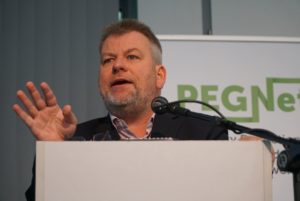
Social protection is a key instrument for social, but also economic and socio-political development. Therefore, this topic was the core theme of this year’s Poverty, Equity and Growth Network (PEGNet) conference on 9-10 September 2019. It was jointly organized by DIE, PEGNet and the Center for Development Research (ZEF) in Bonn.
At the conference, Markus Loewe, research team leader within DIE’s Research Programme „Transformation of Economic and Social Systems“, moderated a panel discussion on the targeting of social transfers. The discussion made clear that means-tests rarely work in developing countries. Rationing of transfers should therefore be done by self-targeting mechanisms (such as in cash-for-work schemes) or by categorical targeting (e.g. flat transfers being paid to all orphans or people above age 65).
In addition, DIE organised three scientific panels at the conference and contributed five presentations. They pointed out that social protection schemes can be effective in cushioning the negative social effects of rising energy prices, that social insurance can make important contributions to general welfare, and that social policy reforms should be coordinated with civil society. The final debate of the conference discussed when social protection schemes can and should be financed by contributions, taxes or official development aid.

Schreibe einen Kommentar